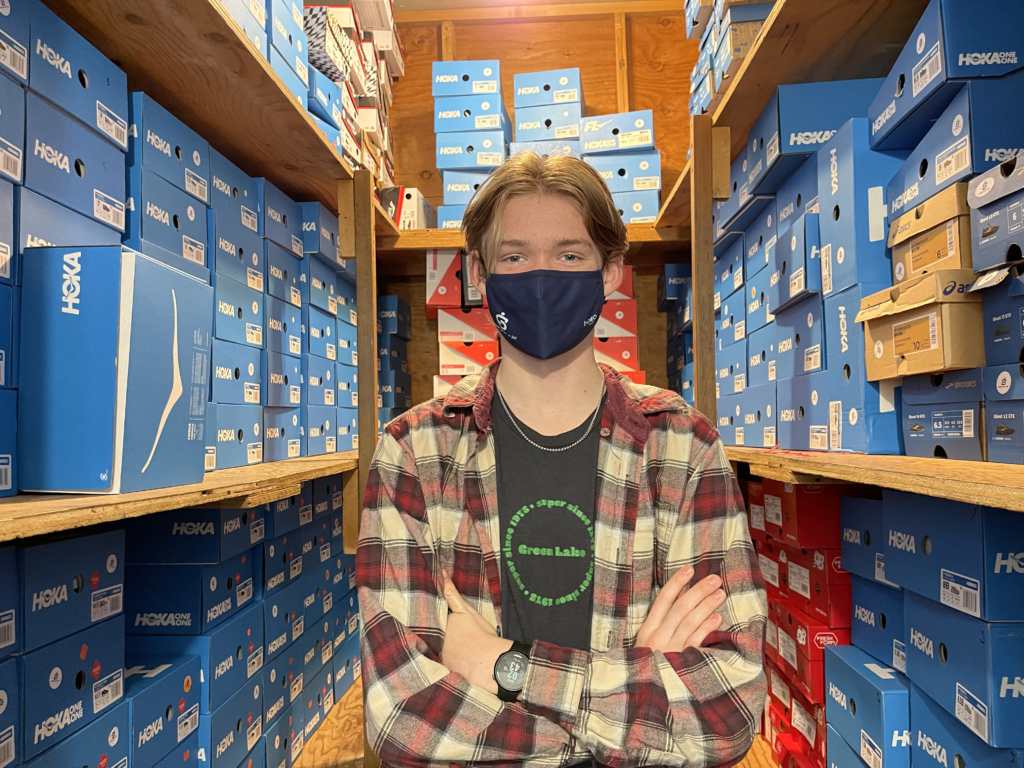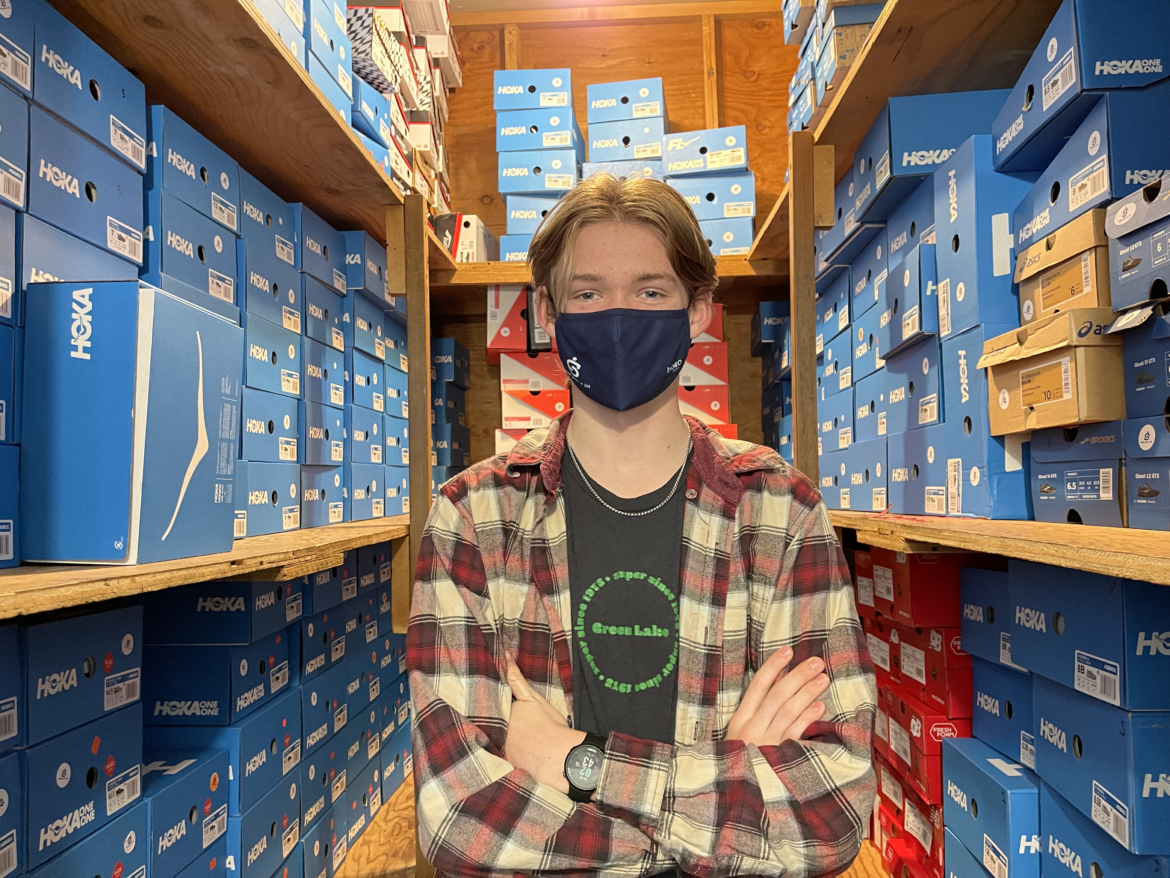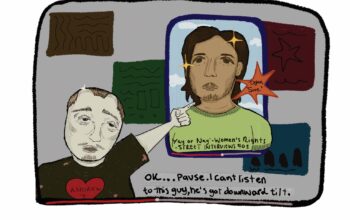
Liam Hutchinson, pictured above
Working during high school can have positive and negative effects on students’ academic performance and health. According to the Bureau of Labor Statistics, nearly 1 in 4 high school students worked in 2014, usually to help support their families, save for college, or just to earn extra money.
However, in recent years there has been a decrease in high school students having a part-time job before entering college. According to the Washington Post, “Though plenty of students completed internships while in college, many of them never had other part-time jobs, working the register at McDonald’s or folding clothes at the Gap.”
Some students find it easier to take out loans instead of working, as part-time checks are only able to pay a small percentage of college tuition.
Researchers at Walden University found that students who work upward of 20 hours a week suffer from reduced academic performance. A part-time job also reduces time for an active social life.
With this in mind, The Roosevelt News interviewed three Roosevelt seniors who have part-time jobs in different fields. Their experiences highlight varied views on working during the school year.
Senior Kira Stewart works at the Northgate area gym Seattle Athletics. She started in September and works five hours per week. “I decided I wanted a job to get work experience so when I actually try to get a job that interests me I have a reference,” she says. “That was my main goal.”
The skills that Stewart learned center around increasing efficiency and confidence. She says, “If I were to start another job, I do think I would go in feeling more comfortable interacting with the customer.”
Mia White, another senior, works at Chocolati, a Green Lake cafe. She started working as a barista five months ago in the summer. “I thought it would be fun and interesting to get work experience. I also wanted to start earning my own money,” says White. She works seven hours a week and is paid $15 per hour plus tips.
Liam Hutchinson, another senior, works at the Super Jock n’ Jill in Northgate. He is currently working 11 hours per week. He began working five months ago because he wanted “to make money and gain experience working in a professional environment. I believe it will help me get a job later in life.”
When working, there are always some customers who can be rude or don’t comply with business rules. In response to such cases, White says lightheartedly, “I really don’t have any patience for people who refuse to wear a mask after over a year of the pandemic so I just tell them to put a mask on per company policy or leave!”
Hutchinson has also faced similar situations. Because he is a younger employee, some customers would “ask if someone else can help them find shoes because they think that I won’t be able to adequately do so.” Later, he learned to brush it off and ignore it, saying, “My self worth is a lot higher than what customers think of me.”
Balancing work and school can be challenging, so many managers tweak hours to accomodate a healthy balance. For example, working at Chocolati has allowed White to maintain a manageable schedule. She says, “My boss is super understanding and encourages his employees to prioritize school over work which is very nice.”
By contrast, Stewart explains that she wouldn’t be able to change her hours easily, suggesting that flexibility varies among employers.
Even though work has brought some difficulties for these students, they gave some advice for peers who are interested in joining the field. Hutchinson says, “Find a job where the employees and your boss treat you with respect. With this type of support you can learn a lot more and have a lot more success.”
He advises students to avoid inflexible jobs because if your boss “doesn’t understand that you are trying to balance a lot with school and other activities as well as a job, then that is not the right place to be.”
White speaks to prior work experience at a pizza restaurant, saying, “The management was absolutely toxic. I think steering away from places that say that ‘this isn’t just a job, it’s a family’ is a good idea because, at least in my experience, you end up feeling pressured to pick up shifts and do work that you don’t have time or energy for.”
Lastly, Stewart explains that having connections is very helpful. “I don’t think I would have gotten my job if my parents hadn’t been members of the gym.”


